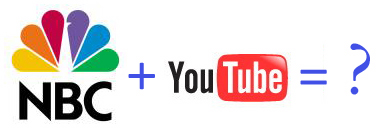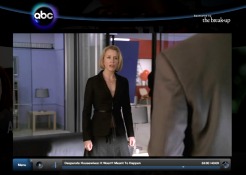
Late last year, a friend asked me if I had watched Saturday Night Live on NBC. I said that I hadn’t seen the show in years. He mentioned an amusing skit entitled “Lazy Sunday” with Andy Samberg and Chris Parnell playing two kids who rap about eating cupcakes, their favorite online mapping engine and watching the Chronicles of Narnia movie. I had thought that it was just another drop in the “can’t see everything” bucket. Fortunately, around the same time, Apple announced the video Ipod, video download services on iTunes and a free download of the SNL skit. Later, SNL had equally funny skit with Natelie Portman doing a bizzarre, much censored gangster rap, which I didn’t see live either. This time, NBC made the video available on their own website. Both clips were uploaded, although initially the site was very unstable and I had trouble getting their videos to play correctly. Since then, they have posted a few other clips from SNL, however, none of them were nearly as funny as the first two. The problem the internet solves is that it saves me the trouble from having to sit through hours of mediocre skit comedy to see the gems. Of course, advertisers might see it differently.
Ever since the Saturday Night Live skit “Lazy Sunday,” was popularized on the Internet, NBC has been experimenting with ways of using video clips of their shows to attract viewers. Earlier they forced YouTube, the popular video sharing site, to take down clips of the video, as they were launching their own web clip service on their own site.
In an interesting twist, this week NBC confirmed a report that they will be launching a joint project with YouTube, offer clips from their shows on a NBC “channel” within YouTube’s site. As currently the lowest rated network, NBC is not surprisingly exploring new ways of using the Internet to get people to watch their programs. ABC has been experimenting with making episodes of their hit shows on iTunes Music store. However, the major difference here is that ABC has the luxury of having the popular shows “Lost” and “Desperate Housewives” which people are willing to pay to download.
I’m looking forward to seeing how NBC implements their YouTube channel. There are many directions they could take, and it will reveal how they understand YouTube. One of the key things about YouTube, is that is it is democratic. A vast amount of material is posted, and users vote on the content they like by, viewing, commenting, and sharing the link. This process is the polar opposite from NBC’s current strategy of curating the “best” skits.
The open question is, then, how effective will NBC engage YouTube users and allow them to participate with NBC content. Will they allow for open comments? I would be very surprised if they let users post NBC content, but will they post clips based upon users requests? If NBC just want eyeballs and think they can just post clips vetted by NBC execs, then there won’t really be much of a change from hosting clips on their own site, save perhaps having more stable access to users.
I hope that the NBC execs are not assuming that posting clips on YouTube is some magic viral marketing silver bullet. In that, the key issue for NBC is to realize that they cannot control viewers. Hosting SNL clips are there own site was only mildly successful. Was the reason because of technology, poor word of mouth, or uninteresting content? Random clips on YouTube get half a million views because people chose that content, not the other way around. 500,000 views may seem small in absolute terms of audience size to the television marketer. However, I would be interested in seeing the cost per view to generate an television audience versus YouTube.
In the end, bad T.V. is bad T.V and putting clips on YouTube is not going to fix that. If NBC has shows they truly believe to be good, but under watched, YouTube can be a powerful tool to build a community around the show. The secondary media ecology surrounding ABC’s Lost is the current gold standard. Something on that level cannot be produced on demand. That is, a network cannot build a sustainable community around a show that no one cares about. For this venture to be successful, NBC will need to engage the audience and it cannot assume it understands exactly their preferences. If you look at their current ratings, it is unclear if they understand what viewers want. Let’s see what happens.


 2. I recently
2. I recently 
